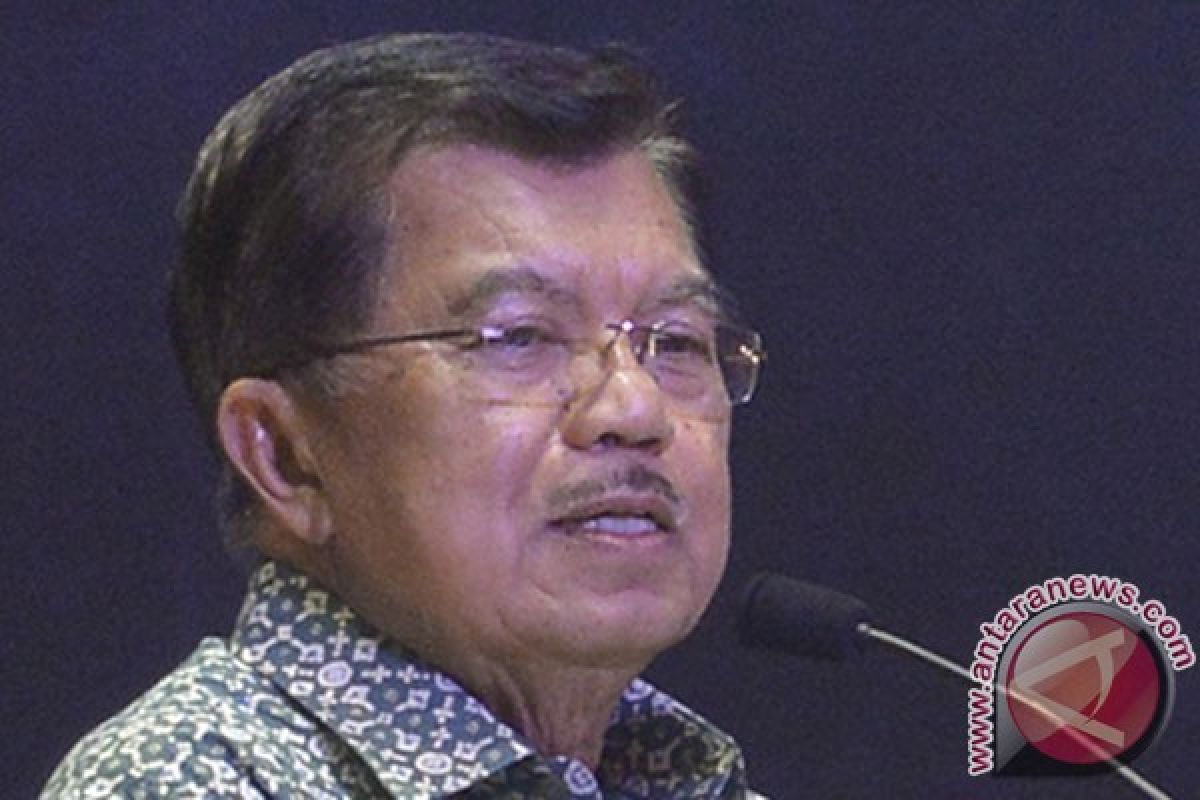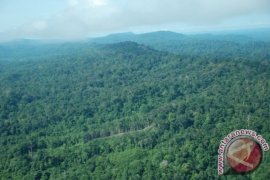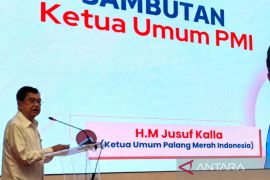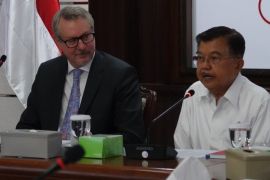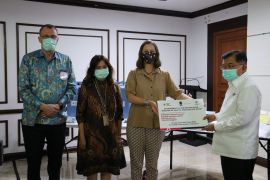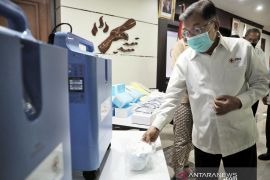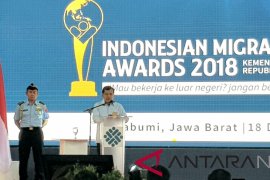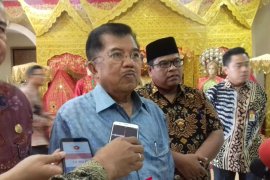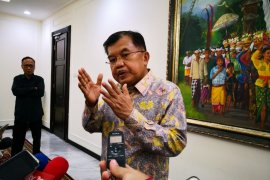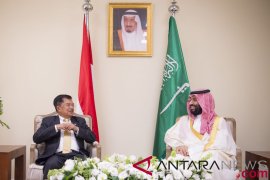Locking green infrastructure today can bring benefit for many decades to come."Jakarta (ANTARA News) - The Government of Indonesia, in cooperation with various businesses, is committed to shifting development planning to a greener model in order to support inclusive and sustainable economic growth.
The country is now welcoming the opportunity to shift to infrastructure projects that are cleaner, more sustainable, and inclusive.
"Locking in green infrastructure today can bring benefits for many decades to come. In this endeavor, the developing countries can take the lead in leapfrogging from brown to green growth," Vice President Jusuf Kalla stated during his opening address at the Indonesia Green Infrastructure Summit 2015 held at Fairmont Hotel here on Tuesday.
Hosted by the Indonesian Chamber of Commerce and Industry (Kadin) and supported by the World Bank Group, the summit also seeks to strengthen partnership between the government and the private sector in implementing green initiatives.
The event also showcases Indonesias efforts to implement a range of green development initiatives across all core growth sectors as part of the medium term development plan from now until 2019.
Kalla noted that Indonesia has enjoyed significant growth, with its GDP doubling in the last decade and poverty reducing to half, down to 11.3 percent in 2014.
However, he added that not all are benefiting from these achievements, and they come at a high price of environmental degradation.
The vice president pointed out that China has shown double-digit growth for decades but has lost a staggering 9 percent of its expected GDP to "brown growth."
In response, he affirmed that China is adopting green policies and shifting its economic activities to innovation and higher value-added production and is currently seeking to be an early mover in the race to implement green production processes.
"Maintaining the growth can reverse the gains to economic growth, as it quickly depletes the natural resources, which leads to greater vulnerability to climate change or associated with health risks," Kalla pointed out.
He stated that environmental degradation affects everyone and hits the poor the hardest, as they are more vulnerable to violent weather and floods, and their livelihood are more fragile.
Further, he stated that the poverty rate in Indonesia is the highest among the families living in environmentally degraded areas.
"So, if there is one major lesson that development experts, policy makers, and institutions - such as the World Bank - have learnt over the last decades is that: If we want to succeed in ending poverty, we cannot rely on growth alone unless it is inclusive and environmentally sustainable," he affirmed.
On the occasion, Kalla also highlighted three areas that are critical to ensuring that future growth is both green and inclusive.
According to Kalla, the first area is that the energy produced by Indonesia must be clean and used efficiently; second, the natural resources must be managed in a responsible manner; and the third is that the country needs good policies, good governance, and leadership that is not afraid to tackle the status quo.
"There are many who fear that green growth is too expensive, could slow output, or should concern only high-income countries, but this fear is short-sighted," Kalla said, adding that sustainable growth is neither unaffordable nor is it technically out of reach.
In the meantime, World Bank Group Managing Director Sri Mulyani Indrawati explained that development with a short-term outlook will be counterproductive and will impact Indonesias growth potential.
"If we want to succeed in ending poverty, we cannot alone rely on growth unless it is inclusive and environmentally sustainable. In simple terms, success will depend on how a country will grow and not just by how much," Mulyani emphasized.
She noted that without changes in near-term priorities, Indonesia risks treading on a path of unsustainable growth and will be constrained by limited opportunities and could face economic stagnation.
According to Mulyani, Indonesia will certainly face challenges to walk on the path of green growth, including the need for huge financing and implementing the right policies.
There is also a pressing need for good governance, which is among the biggest challenges faced by several developing countries.
However, as proven by countries such as South Korea, which has successfully transitioned to a greener economy, the opportunities to succeed still exist.
"This can be an opportunity for green and inclusive growth by addressing the energy needs in sustainable ways, by handling resources responsibly, and by putting governance mechanisms in place that will benefit all Indonesians, including the future generations," Mulyani remarked.
In addition, Kadin Chairman Suryo Bambang Sulisto noted that Kadin is committed to working with the government to achieve "green" and sustainable development goals.
"We in the private sector fully support the development goals for green infrastructure," Suryo pointed out.
He remarked that the challenge to meet the governments infrastructure goals is enormous and will require full partnership and investments from the private sector, domestic and international, as well as the participation of multilateral organizations.
The Indonesia Investment Coordinating Board estimates that the potential for "green" infrastructure for foreign and domestic investors will increase by about 20 percent until the year 2019.
Hence, incentives for "green" development are essential to ensure that the anticipated investment growth will take place.
Policymakers from President Joko Widodos government took part in the conference alongside key industry players from Indonesia and overseas.
The topics discussed included: spatial planning and land use, efforts for 35 thousand megawatts of sustainable power generation, promotion of a "blue" economy and support for Indonesia as a global maritime powerhouse, sustainable infrastructure financing, green public transport options, and the role of state-owned enterprises in implementing green development plans.
According to Trade Minister Rachmat Gobel, the governments infrastructure program will require more than Rp5 trillion, or Rp1.1 trillion a year.
"The partnership between the government and the private sector will encourage foreign investors to invest in Indonesia," he pointed out.
The annual national meeting for Kadins Infrastructure, Environment and Sustainable Development division also took place on the sidelines of the summit, where provincial chapters contributed their views on programs related to infrastructure and environment in the provinces.
(T.O001/INE/KR-BSR/F001)
Reporter: Otniel Tamindael
Editor: Priyambodo RH
Copyright © ANTARA 2015
